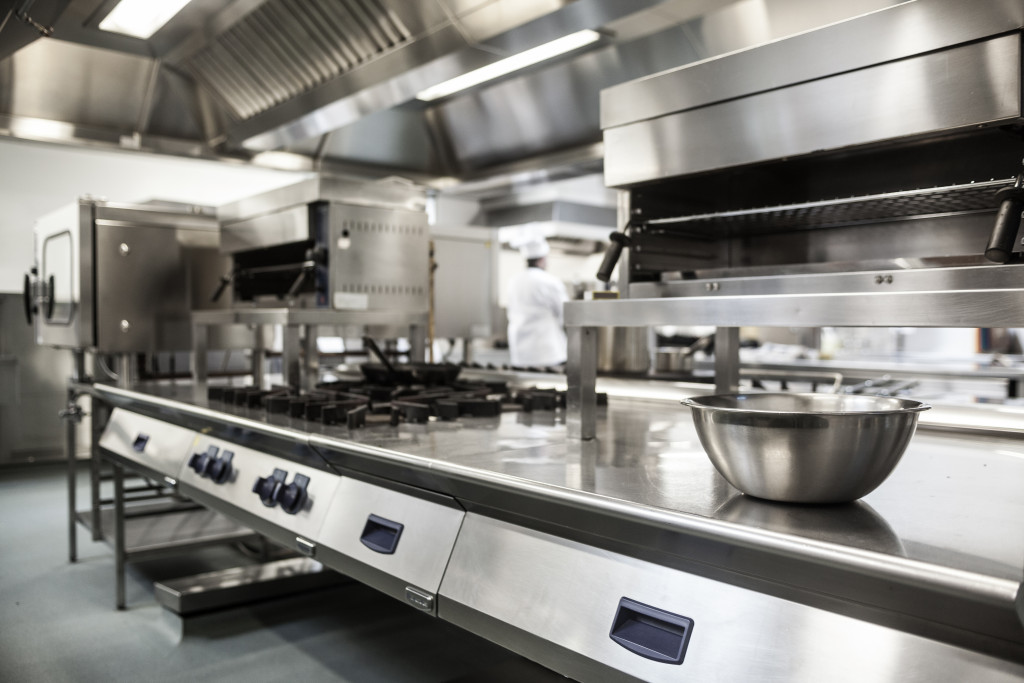First thing’s first: what is a ghost kitchen? The ghost kitchen is not a new concept. Also called a cloud kitchen, virtual kitchen, commissary kitchen, or dark kitchen, the ghost kitchen is a professional food preparation facility for delivery-only food businesses. The idea boomed during the pandemic because customers cannot dine-in in restaurants. Since they could not afford the rent without diners, many restaurants opted to bring their kitchens back home and deliver meals from there instead. A lot of home cooks are also now offering deliver-only meals as a way to cope with the economic constraint of the pandemic.
But having the kitchen in your home or renting a small apartment for it doesn’t remove the fact that you have to keep it orderly, clean, hygienic, and sanitized. Now more than ever, it is important to make sure the meals you prepare are safe and clean. Even the packaging must be well-sanitized before delivery. Handling food was a major concern during the pandemic and it will continue to be an issue in the new normal as people became afraid of what they can get when they order food.
Get the Right Equipment
Why do you think commercial kitchens are equipped with stainless steel countertops and food trays? Not because they look aesthetically great (wood and bricks are better-looking) but because they are the easiest and most practical to sanitize. Stainless steel doesn’t react to the chemicals in a cleaning solution. It dries easily and is resistant to corrosion as compared to other metals. It is also nonporous, which means that it doesn’t absorb germs, chemicals, and toxins like wood, for example, can. Stainless steel is the safest choice for industrial kitchens where the threat of bacterial growth is high.
Aside from the equipment, it’s also important to have the right cleaning solutions. What have you been using lately? Make sure you use a food-grade cleaning solution to wipe countertops, drawers and cabinets, and the pots, pans, and utensils themselves.
Keep the Staff Clean
What good will it do for the kitchen to be clean if the kitchen staff has blood on their aprons and dirt under their fingertips? Make sure everyone understands that sanitation refers to them, too, and not only to the kitchen as a whole. If a stain gets on their aprons, they should change to a new one and put the dirty apron in a hamper away from the main kitchen. They should clean as they go, a cardinal rule in every commercial kitchen. The point is to treat your ghost kitchen as you would a commercial kitchen. The purpose remains the same—deliver safe and quality meals.
Separate Raw from Dry Food
Don’t ever use the same chopping board for fruits, vegetables, and raw or cooked meat. Have separate areas for prepping raw meat. Don’t use the same spatula for different dishes, too, especially when the other one still has raw meat. Remember that raw meat carries with it a lot of bacteria such as salmonella. You don’t want your customers suing you for food poisoning, right?
You should have a different freezer for your raw meats and your frozen vegetables or fruits. If you are using fresh vegetables and fruits, make sure that they are prepared in a different area of the kitchen. Dividing your kitchen into zones is not a matter of preference. It’s the right thing to do.
Clean Every Single Day

Yes, you are tired after a long day in the kitchen. That doesn’t mean you should forego cleaning the kitchen before you leave for home. That’s why—if your business can afford it—you should hire a cleaner after working hours. The cleaner should make sure that everything is back to its proper places, that the countertops are sanitized and ready for another day, and that the whole kitchen is in order.
Set a Deep-cleaning Schedule
It’s not enough that you clean the kitchen daily. You should schedule a weekly and monthly deep-cleaning schedule for the areas that you don’t usually reach every day. Every week, you should clean out the fridge and remove food that is past its expiration dates. This last bit should not happen if you are doing inventory well. Every month, you should drain pans and tubs, as well as check the ventilation units, to make sure there’s no build-up of germs and bacteria there. These are some examples of a deep-cleaning ritual.
A clean, sanitized, orderly, and hygienic ghost kitchen plays a huge role in the success of your business. Remember that you are not just responsible for filling your customers’ bellies. You are also responsible for making sure they stay healthy and safe from the food they consume.

